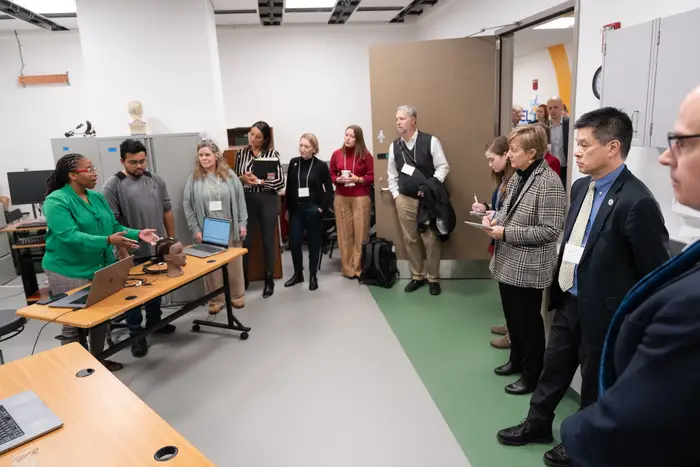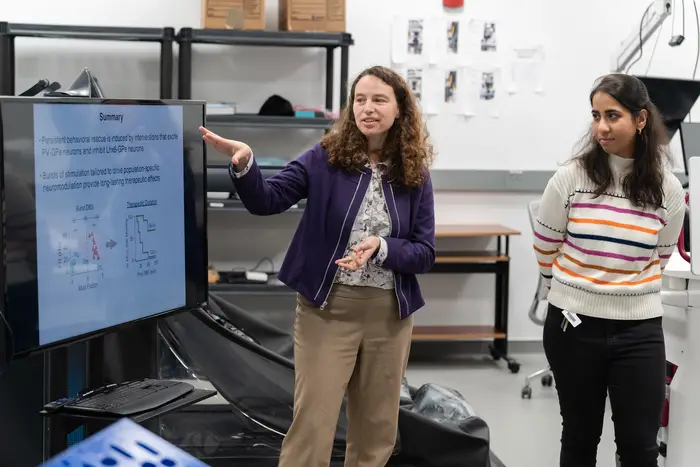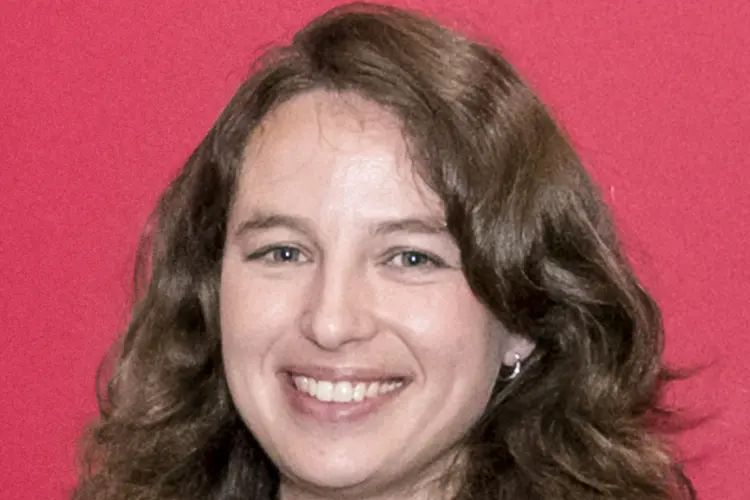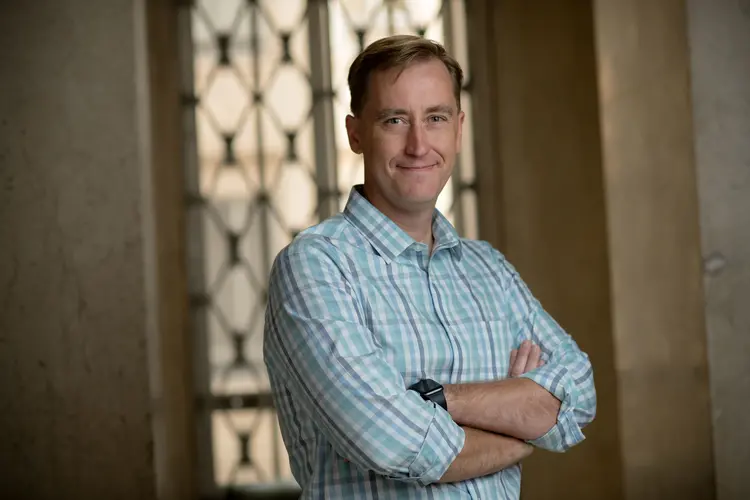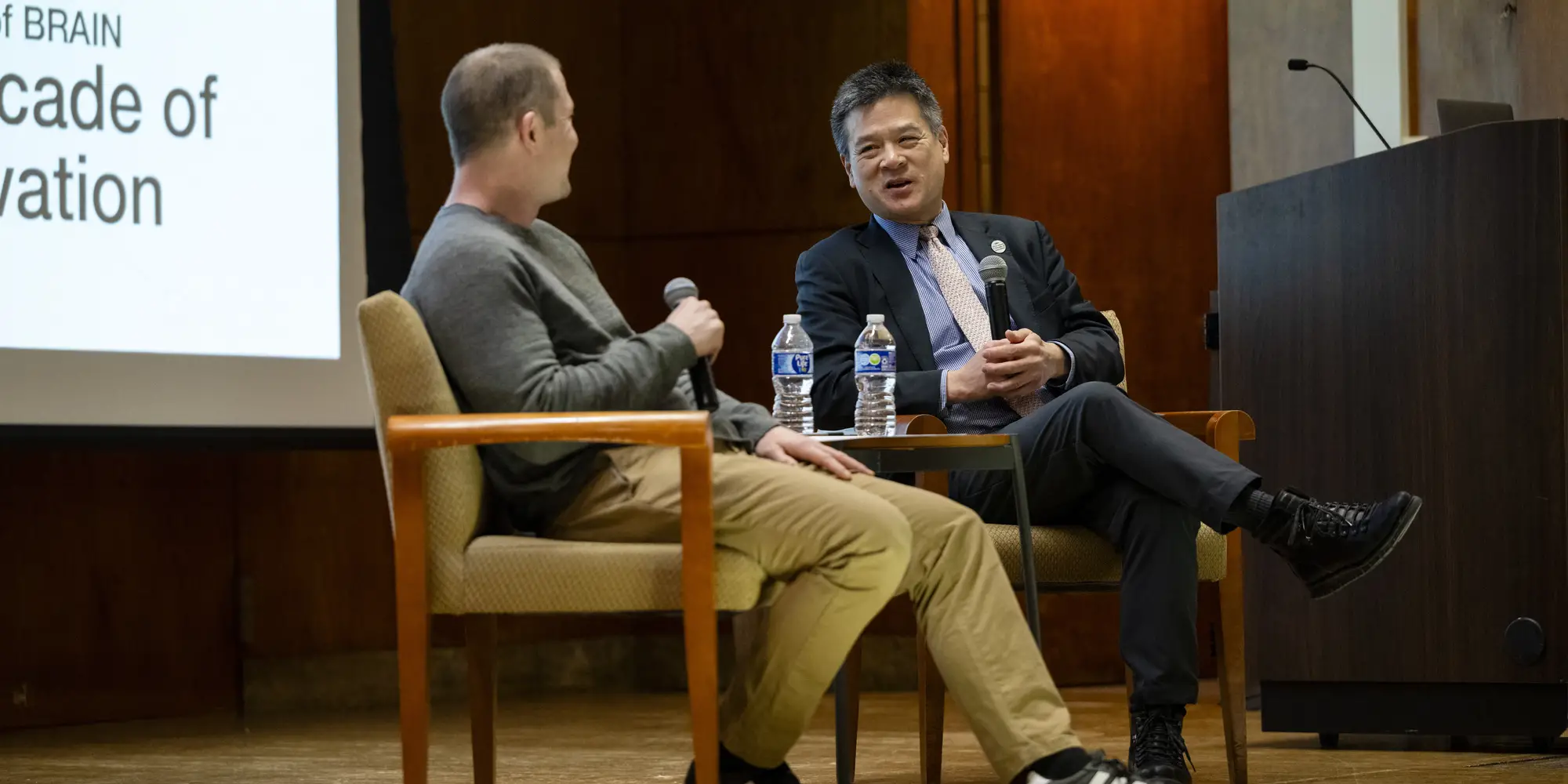
BRAIN Initiative Director Visits CMU, Pitt
Media Inquiries
John Ngai, director of the National Institutes of Health Brain Research Through Advancing Innovative Neurotechnologies (BRAIN) Initiative(opens in new window), visited Carnegie Mellon University and the University of Pittsburgh Nov. 21-22 for lab tours, research presentations and a talk with the community held in Mellon Institute.
The Center for the Neural Basis of Cognition (CNBC)(opens in new window), a partnership of more than 30 years in research and education between the two universities, hosted the visit. More than 50 faculty members at CMU and Pitt have led or co-led BRAIN Initiative research teams.
Ngai joined Congressional staff and university leadership on a tour of the Rehab Neural Engineering Labs (RNEL)(opens in new window), a collection of labs at Pitt in the newly constructed UPMC Mercy Pavilion working to improve the quality of life for people with neurological impairments. There, he saw presentations from both CMU and Pitt faculty and students on collaborative work to develop brain-computer interfaces, spinal cord stimulation, deep-brain stimulation, and noninvasive technologies used to measure brain activity.
Matthew Smith, a professor of biomedical engineering(opens in new window) and the Carnegie Mellon Neuroscience Institute(opens in new window) and co-director of the CNBC, said that many of the research teams funded by BRAIN are working to develop neurotechnology to enhance the lives of people with devastating health challenges.
“Dr. Ngai got to see work that is poised to make a huge difference to patients with epilepsy, tremors, limb amputations, Parkinson’s disease, communication impairments and spinal cord injuries,” he said.
At the public talk, CMU’s Alison Barth(opens in new window), the Maxwell H. and Gloria C. Connan Professor in the Life Sciences, introduced Ngai. Barth was the first Ph.D. student who graduated from Ngai’s lab, and described the experience of learning to appreciate Ngai’s mentorship when she became an adviser for her own students. Ngai said those mentorship skills remain an important part of his job today.
“My role as a mentor is to help the mentee find a path to make their ideas a reality, to invest resources into the people doing the work,” Ngai said.
Ngai offered advice for early career scientists.
“Twenty years ago, people debated whether we should sequence a genome. Now we have so many tools as a result. It’s a great time for neuroscience today. How you want to pursue your passion depends — it’s just a matter of what’s going to get you up in the morning and make you succeed,” he said.
